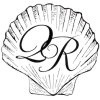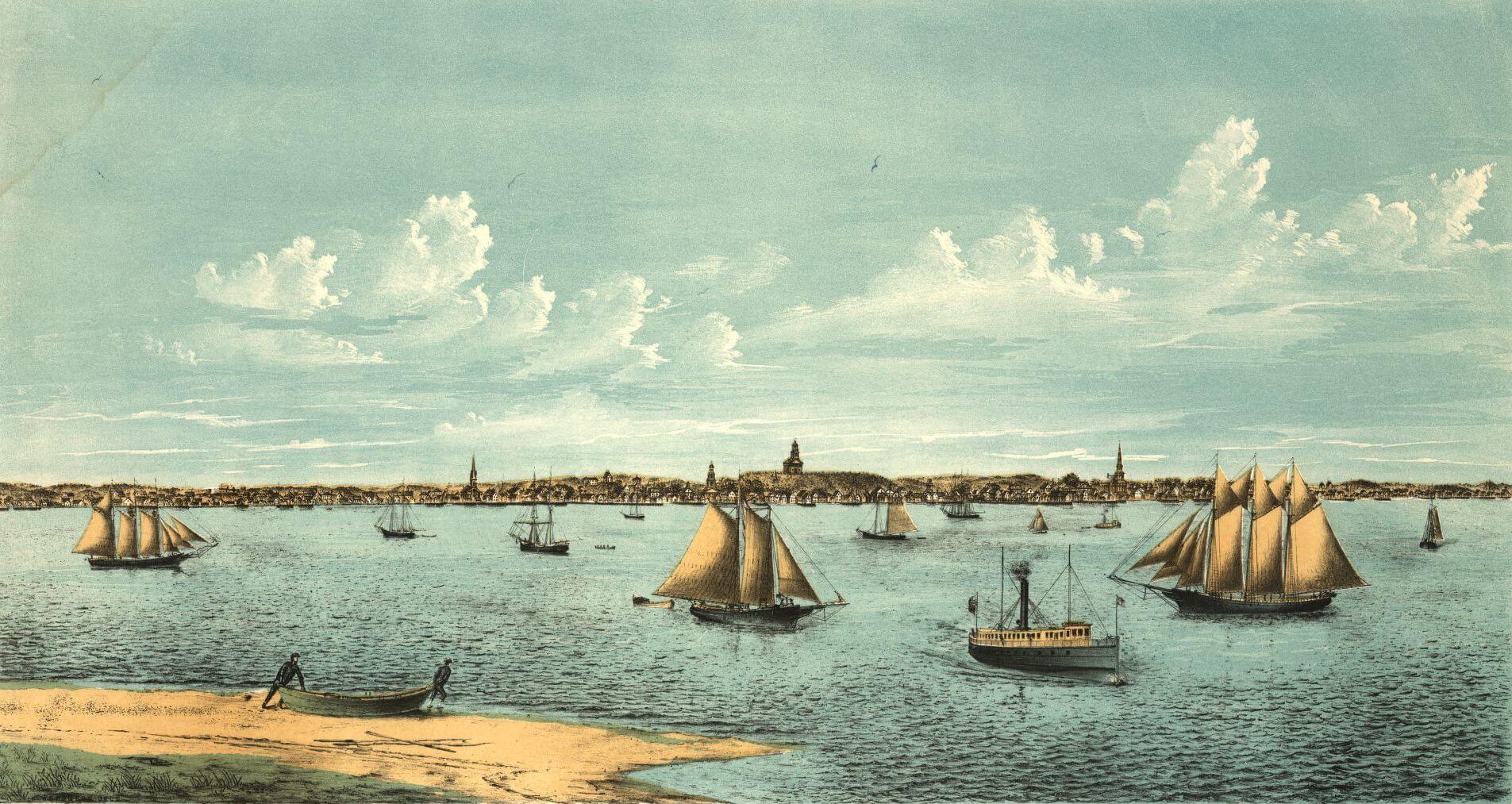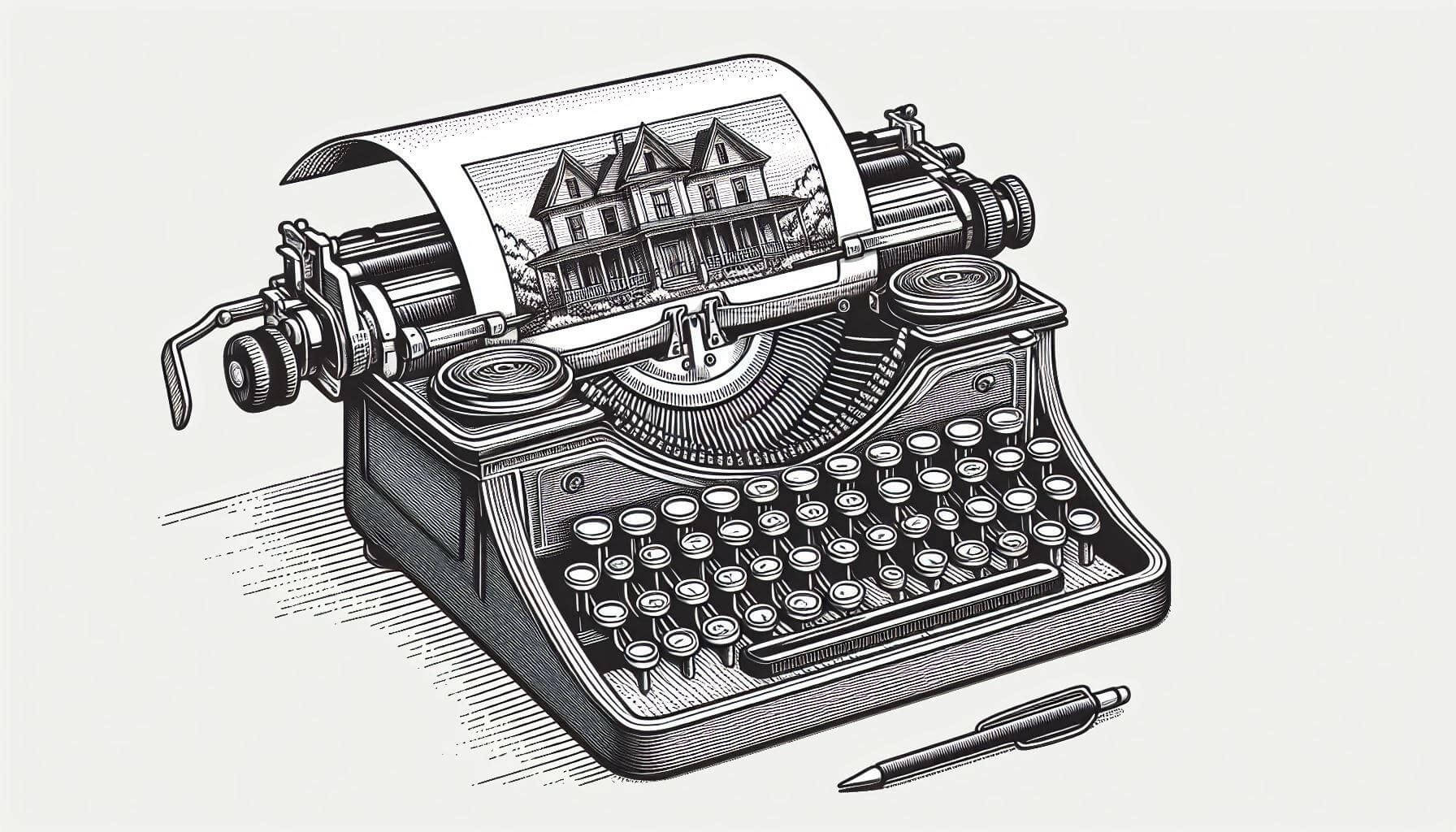Quarterboards are a distinct and beloved homage to the seafaring heritage and culture of New England. Used to identify ships, these boards were affixed to the stern and bore the name of the vessel and the port of call. These boards were sometimes removed from ships or collected from wrecks and displayed on the sides of homes.

Not legally required like their _ (though regulated in their own way), contemporary quarterboards adorning coastal homes are purely decorative. handsomely carved traditionally by hand from pine or _, weatherized with several layers of oil paint and embellished with gold leaf. often feature nautical motifs, with popular choices including compass roses, stars, and scallops. though can be quite elaborate and _ , . though can get very specific and unusual, and often inscribed with historical significance or humorous sentiment.
Naming a fishing boat is an act that, for most fishermen, blends tradition, superstition and, at times, a dose of practicality. Boats are considered to be female so “wives, girlfriends and daughters are traditional choices for names,” a longtime fisherman told me.
Superstition say it is bad luck to rename a vessel, though common practice.
This superstition goes back a long time, and is even mentioned in the classic novel “Treasure Island,” in which Long John Silver says, “What a ship was christened, so let her stay.” Tales abound of captains renaming their ships in a moment of hubris, only to be met with a tragic watery end. Legend says that when every ship is christened, its name goes into a “Ledger of the Deep” maintained by Neptune (or Poseidon) himself. Renaming a ship or boat means you’re trying to slip something past the gods and you will be punished for your deviousness.
Another, more practical, explanation is that back in the day when most boats were used to transport cargo, each vessel had its own reputation, good or bad, in ports of call all over the world. A sudden name change would render a boat, and therefore its reputation, unrecognizable and likely cause many problems for the captain and crew
names of vessels tend to fall into certain categories, including but not limited to the following:
Animals
(particularly birds and sea creatures)Birds are good choice, convey freedom, swiftness. Extra points for sea birds, comfort at sea, whale ship Sea Gull (through perhaps not Albatross) slave ship turned pirate ship Whydah, perhaps cruelly named for an African bird. Sea creatures such as Sea Horse, less majestic sounding Grampus (a type of dolphin). Orca from Jaws (recent evidence shows orcas prey on whales, and despite Jaws massive size, team work).
People
in honor someone, traditionally the owner (Charles W. Morgan) or the wife of the owner, or an important political figure or prominent member of society.
Flying Dutchman? more discreetly/ambiguously, (if you don’t want to leave anyone out) Brother, Cousin, Citizen, Pilgrim, Happy Couple

female figures: Queen Anne’s Revenge, Huntress, Shepherdess, Heroine, Cleopatra, Sappho (quite risqué for a Quaker whale ship), Syren (another odd choice)
Though _ calm the sea, one of the most famous wrecks on the treacherous shoals of Nantucket Sound. the British Queen.
Celestial
get out your sextant, an important part of navigation at sea, turned to the skies for inspiration though interestingly not necessarily _ heavenly bodies like Meteor and Comet, steady course orbit.
Geographic Locations
Ill-fated whale ship Essex, one of the largest vessels built that shares a name with the ill-fated colony of Roanoke.
Vibe
maybe a little projection/wishful thinking here. Pirate ship Fancy, Titanic, Adventure Galley, Royal Fortune. Other end of the spectrum, Melville, Bellipotent “mighty in war” impressed into service Billy Budd, alluding to demise and _, Pequod, the fictional ship aboard which most of Moby Dick takes place, named for a _ of Native Americans.






